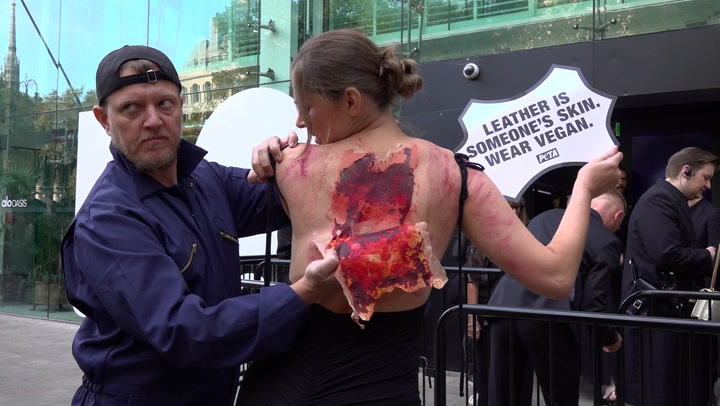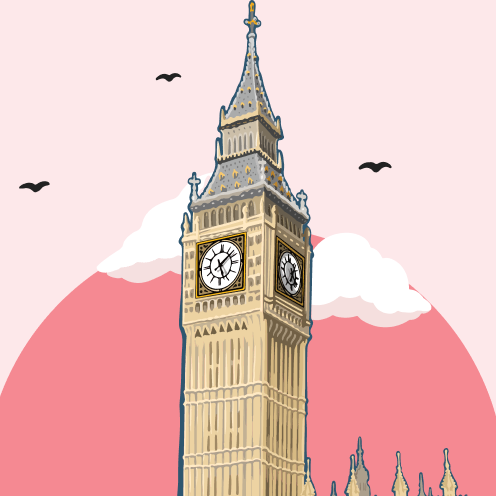Campaigners are calling for tighter restrictions on the sale of toxic skin-lightening products as an eBay seller received a suspended sentence for selling more than 20,000 bottles of the illegal goods.
South London resident Musiliu Olatunji Badejo, 56, pleaded guilty to selling the banned cosmetics in April following a four-year investigation by Southwark Council’s Trading Standards team.
Recent research has found that skin lightening is common among people from Black, Asian and minority ethnic communities, while many remain unaware of the health risks including increased chances of skin cancer, plus liver and kidney damage.
Colourism, a system of inequality that views fairer hues as more beautiful than darker skin complexions, is often the reason behind skin lightening, studies have highlighted. Skin lightening is common in the UK, as well as the US, plus parts of the Caribbean, Africa and beyond.
Labour MP Kim Johnson is calling for tougher government restrictions on the sale of these items.
“Illegal skin lightening products are incredibly dangerous, not just because of the physical harm they can do but also because they reinforce Eurocentric beauty standards and valorise fair skin at the expense of darker complexions,” she told The Independent.
“That this legacy of colonialist attitudes is still so prevalent and these products are still widely available in 2024 is a stain on our society, and must be stamped out. These attitudes stretch far beyond the realm of beauty standards and are reflected in the economic and structural oppression of people with darker skin.”
Ms Johnson, who is a part of the All-Party Parliamentary Group on Race, added: “While I’m pleased that this eBay seller has been brought to justice, the government must take action to strengthen guidelines, tighten regulations, and increase deterrents to put an end to the distribution and sale of these dangerous and toxic products.”
Level Up, a campaigning group, has been calling for the removal of toxic cosmetics from shop shelves for years, urging manufacturers to stop making them.
Seyi Falodun-Liburd, the group’s co-director, told The Independent: “Products like these, made to align with dangerous and racist hierarchies of beauty, have always been lucrative and often at the expense of Black and global majority women’s health.
“It’s encouraging to see courts taking this issue seriously; retailers who risk the lives of their consumers for profit should be held accountable.
“More needs to be done to make these products less accessible for everyone, consumers and retailers alike.”
Badejo, whose goods were valued at over a quarter of a million pounds, received a six-week prison sentence suspended for 15 months and was ordered to pay £4,750 in fines.
During his hearing at Inner London Crown Court, it was revealed that between March 2020 and January 2023 he had used multiple eBay accounts to sell more than 20,000 cosmetic products to UK customers, earning £340,000.
Badejo said he imported most of the products from Ghana, Nigeria and Thailand to his home in London.
Southwark Trading Standards had detected two of his accounts and made seven test purchases, carrying out tests which showed that five of the items contained either hydroquinone or corticosteroids, which are both banned and dangerous chemicals.
One bottle, Pure White Dark Spot Corrector Serum, contained both but did not list them as ingredients.
The serum contained 10 per cent hydroquinone, which is five times the limit that was allowed in cosmetics before a complete European ban in 2001 and an American ban in 2020.
In October 2022, the Trading Standards team raided Badejo’s flat and seized just under 2,000 products, while he was out of country.
Around this time, two of his accounts were suspended by eBay.
Further tests confirmed that many of the seized products contained hydroquinone and corticosteroids, but these were not included on the ingredients labelling, a legal and safety requirement.
Trading Standards then served a notice on Badejo, cautioning him to stop selling these illegal cosmetics. However, when more eBay checks were made they found Badejo was using two other accounts, which were eventually closed by eBay.
Prospective sellers who want to import cosmetics into the UK have to carry out a safety assessment and keep detailed records about the produrcts, according to the law.
However, during an interview under caution, the former vendor admitted he had not carried out any of the checks required, explaining that he didn’t know this was necessary.
Councillor Natasha Ennin, cabinet member for Community Safety at Southwark Council, said: “The sale of illegal and dangerous skin lighteners is abhorrent. Southwark Council is committed to keep people safe and our Trading Standards team is one of the most proactive in the country in tackling this toxic trade.
“We will not hesitate to take action against irresponsible traders who put profit over the health of their customers.
“People cannot hide away selling illegal goods from home online. I hope this court outcome serves as a deterrent to others who think they can import cosmetics without any regard to the vital safety laws that protect people from harm.”
An eBay spokesperson told The Independent: “We take the safety of our users very seriously. We work closely with authorities such as Trading Standards and the Medicines and Healthcare products Regulatory Agency (MHRA) to keep our platform safe.
“Our regulatory portal also enables authorities to report listings of unsafe products to us for swift removal.
“Any items found in breach of our safety policies will be removed immediately and action taken against sellers, which could include suspending seller accounts.”
The government’s Department for Business and Trade has been approached for comment.
Source: independent.co.uk



